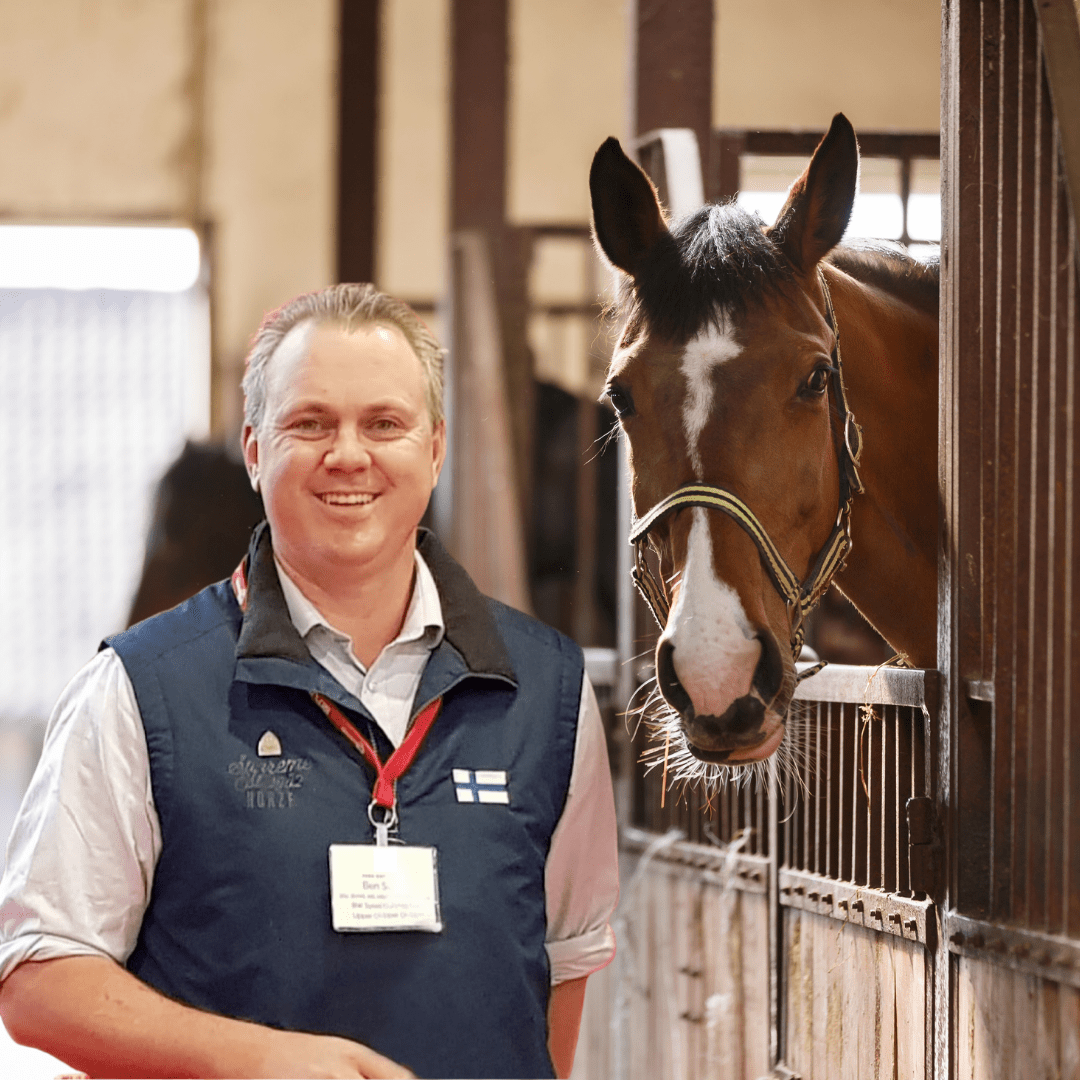
BSc BVMS MSc MBA DipACVIM PhD FHEA
Ben Sykes is a veterinarian with over 27 years of clinical experience and board certification in large animal internal medicine. He has worked extensively with high-performance horses, including those in racing and sport disciplines. His primary research interest is in equine gastrointestinal diseases, especially Equine Gastric Ulcer Syndrome (EGUS). Ben is also active in veterinary education, both at undergraduate and postgraduate levels, and is a frequent international speaker. In 2023 and 2024, he was recognised by Stanford University as being among the top 2% and 1% of researchers in his field globally.
Ben Sykes on loomaarst, kellel on üle 27 aasta kliinilist kogemust ning kes on spetsialiseerunud suurloomade sisehaiguste erialal. Ta on ulatuslikult töötanud tipptasemel hobustega, sealhulgas galopi- ja sporthobustega. Tema peamine teadushuvi on seotud hobuste seedetrakti haigustega, eriti maohaavandisündroomiga (EGUS). Ben on aktiivselt seotud veterinaarharidusega nii üliõpilaste kui ka kraadiõppe tasemel ning on sagedane esineja rahvusvahelistel konverentsidel. Aastatel 2023 ja 2024 tunnustas Stanfordi Ülikool teda kui oma valdkonna maailma tippu kuuluvat teadlast, paigutades ta vastavalt 2% ja 1% parimate hulka.
Not all behavioural problems stem from Equine Gastric Ulcer Syndrome (EGUS), yet it remains a common and often misunderstood contributor to poor performance, sensitivity, and unpredictability under saddle. This lecture explores when it is appropriate to consider EGUS as a factor, how to differentiate it from other issues, and why simply offering free-choice hay and removing starch may not be enough. Prevention and management strategies grounded in evidence and equine-specific needs will be discussed to support both behavioural wellbeing and optimal performance.